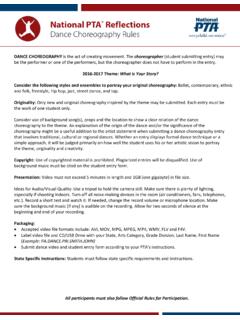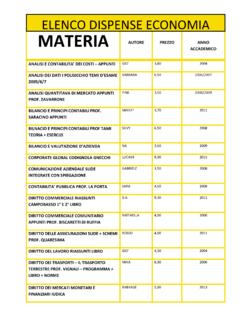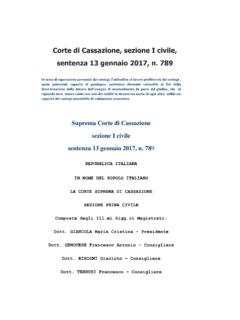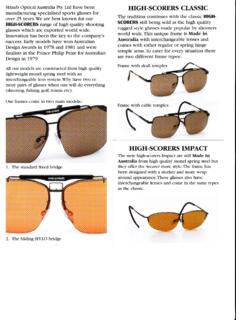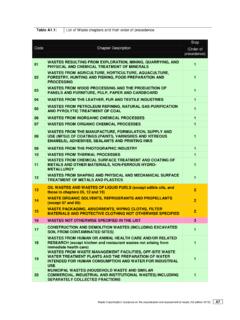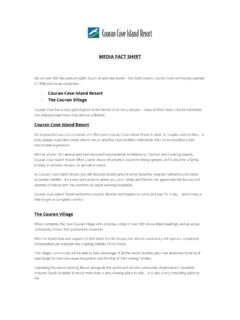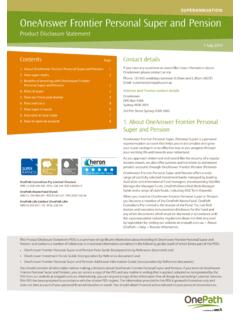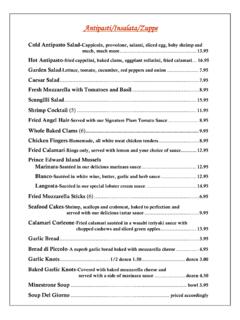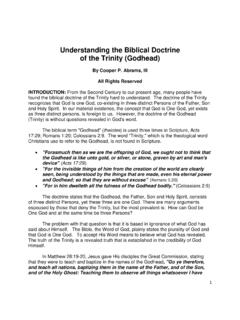Transcription of EMOTION REGULATION HANDOUT
1 EMOTION REGULATION HANDOUT Life Management Associates, LLC 600 Dewey Blvd., Suite B Office: 406-782-4778 Butte, MT 59701 Fax: 406-782-1318 From DBT Skills Training Handouts and Worksheets, Second Edition, by Marsha M. Linehan. Copyright 2 015 by Marsha M. Linehan. Permis-sion to photocopy this HANDOUT is granted to purchasers of DBT Skills Training Manual, Second Edition, for personal use or use with individual clients only. (See page ii of this packet for details.) EMOTION REGULATION HANDOUT 6 ( EMOTION REGULATION Worksheets 4, 4a) (p. 1 of 10)Ways to Describe EmotionsANGER WORDS angerbitternessfuryindignationvengefulne ssaggravationexasperationgrouchinessirri tationwrathagitationferocitygrumpinessou trageannoyancefrustrationhostilityragePr ompting Events for Feeling Anger Having an important goal blocked. You or someone you care about being attacked or threatened by others. Losing power, status, or respect. Not having things turn out as expected.
2 Physical or emotional pain. Other: Interpretations of Events That Prompt Feelings of Anger Believing that you have been treated unfairly. Blaming. Believing that important goals are being blocked or stopped. Believing that things should be different than they are. Rigidly thinking, I m right. Judging that the situation is illegitimate or wrong. Ruminating about the event that set off the anger in the first place. Other: Biological Changes and Experiences of Anger Muscles tightening. Teeth clamping together. Hands clenching. Feeling your face flush or get hot. Feeling like you are going to explode. Being unable to stop tears. Wanting to hit someone, bang the wall, throw something, blow up. Wanting to hurt someone. Other: Expressions and Actions of Anger Physically or verbally attacking. Making aggressive or threatening gestures. Pounding, throwing things, breaking things. Walking heavily, stomping, slamming doors. Walking out. Using a loud, quarrelsome, or sarcastic voice.
3 Using obscenities or swearing. Criticizing or complaining. Clenching your hands or fists. Frowning, not smiling, mean expression. Brooding or withdrawing from others. Crying. Grinning. A red or flushed face. Other: Aftereffects of Anger Narrowing of attention. Attending only to the situation that s making you angry. Ruminating about the situation making you angry or about situations in the past. Imagining future situations that will make you angry. Depersonalization, dissociative experiences, numbness. Other: (continued on next page)Note. Adapted from Table 3 in Shaver, P., Schwartz, J., Kirson, D., & O Connor, C. (1987). EMOTION knowledge: Further exploration of a proto-type approach. Journal of Personality and Social Psych ology, 52(6), 1061 1086. Copyright 1987 by the American Psychological Association. Adapted by REGULATION HANDOUT 6 (p. 2 of 10)DISGUST WORDS disgustaversiondislikedistasterepugnance resentmentsickenedabhorrencecondescensio nderisionhaterepelledrevoltedspiteantipa thycontemptdisdainloathingrepulsionscorn vilePrompting Events for Feeling Disgust Seeing/smelling human or animal waste products.
4 Having a person or an animal that is dirty, slimy, or unclean come close to you. Tasting something or being forced to swallow something you really don t want. Seeing or being near a dead body. Touching items worn or owned by a stranger, dead person, or disliked person. Observing or hearing about a person who grovels or who strips another person of dignity. Seeing blood; getting blood drawn. Observing or hearing about a person acting with extreme hypocrisy/fawning. Observing or hearing about betrayal, child abuse, racism, or other types of cruelty. Being forced to watch something that deeply violates your own Wise Mind values. Being confronted with someone who is deeply violating your own Wise Mind values. Being forced to engage in or watch unwanted sexual contact. Other: Interpretations of Events That Prompt Feelings of Disgust Believing that: You are swallowing something toxic. Your skin or your mind is being contaminated. Your own body or body parts are ugly. Others are evil or the scum of the earth, or that they disrespect authority or the group.
5 Disapproving of/feeling morally superior to another. Extreme disapproval of yourself or your own feelings, thoughts, or behaviors. Judging that a person is deeply immoral or has sinned or violated the natural order of things. Judging someone s body as extremely ugly. Other: Biological Changes and Experiences of Disgust Feelings of nausea; sick feeling. Urge to vomit, vomiting, gagging, choking. Having a lump in your throat. Aversion to drinking or eating. Intense urge to destroy or get rid of something. Urge to take a shower. Urge to run away or push away. Feeling contaminated, dirty, unclean. Feeling mentally polluted. Fainting. Other: Expressions and Actions of Disgust Vomiting, spitting out. Closing your eyes, looking away. Washing, scrubbing, taking a bath. Changing your clothes; cleaning spaces. Avoiding eating or drinking. Pushing or kicking away; running away. Treating with disdain or disrespect. Stepping over; crowding another person out. Physically attacking causes of your disgust.
6 Using obscenities or cursing. Clenching your hands or fists. Frowning, or not smiling. Mean or unpleasant facial expression. Speaking with a sarcastic voice tone. Nose and top lip tightened up; smirking. Other: Aftereffects of Disgust Narrowing of attention. Ruminating about the situation that s making you feel disgusted. Becoming hypersensitive to dirt. Other: (continued on next page) EMOTION REGULATION HANDOUT 6 (p. 3 of 10)ENVY WORDS envycravingdispleasedgreedpettinessbitte rnessdiscontenteddissatisfied green-eyed resentmentcovetousdisgruntleddown-hearte dlongingwishfulPrompting Events for Feeling Envy Someone has something you really want or need but don t or can t have. You are not part of the in crowd. Someone appears to have everything. You are alone while others are having fun. Someone else gets credit for what you ve done. Someone gets positive recognition for something and you don t. Others get something you really want and you don t get it. Being around people who have more than you have.
7 Someone you are competing with is more successful than you in an area important to you. Other: Interpretations of Events That Prompt Feelings of Envy Thinking you deserve what others have. Thinking others have more than you. Thinking about how unfair it is that you have such a bad lot in life compared to others. Thinking you have been treated unfairly by life. Thinking you are unlucky. Thinking you are inferior, a failure, or mediocre in comparison to others whom you want to be like. Comparing yourself to others who have more than you. Comparing yourself to people who have characteristics that you wish you had. Thinking you are unappreciated. Other: Biological Changes and Experiences of Envy Muscles tightening. Teeth clamping together, mouth tightening. Feeling your face flush or get hot. Feeling rigidity in your body. Pain in the pit of the stomach. Having an urge to get even. Hating the other person. Wanting to hurt the people you envy. Wanting the person or people you envy to lose what they have, to have bad luck, or to be hurt.
8 Feeling pleasure when others experience failure or lose what they have. Feeling unhappy if another person experiences some good luck. Feeling motivated to improve yourself. Other: Expressions and Actions of Envy Doing everything you can to get what the other person has. Working a lot harder than you were to get what you want. Trying to improve yourself and your situation. Taking away or ruining what the other person has. Attacking or criticizing the other person. Doing something to get even. Doing something to make the other person fail or lose what he or she has. Saying mean things about the other person or making the person look bad to others. Trying to show the other person up, to look better than the other person. Avoiding persons who have what you want. Other: Aftereffects of Envy Narrowing of attention. Attending only to what others have that you don t. Ruminating when others have had more than you. Discounting what you do have; not appreciating things you have or things others do for you.
9 Ruminating about what you don t have. Making resolutions to change. Other: (continued on next page) EMOTION REGULATION HANDOUT 6 (p. 4 of 10)FEAR WORDS feardreadhorrornervousnessshockuneasines sanxietyedginesshysteriaoverwhelmedtense nessworryapprehensionfrightjumpinesspani cterrorPrompting Events for Feeling Fear Having your life, your health, or your well-being threatened. Being in the same situation (or a similar one) where you have been threatened or gotten hurt in the past, or where painful things have happened. Flashbacks. Being in situations where you have seen others threatened or be hurt. Silence. Being in a new or unfamiliar situation. Being alone ( , walking alone, being home alone, living alone). Being in the dark. Being in crowds. Leaving your home. Having to perform in front of others. Pursuing your dreams. Other: Interpretations of Events That Prompt Feelings of Fear Believing that: You might die, or you are going to die. You might be hurt or harmed. You might lose something valuable.
10 Someone might reject, criticize, or dislike you. You will embarrass yourself. Failure is possible; expecting to fail. Believing that: You will not get help you want or need. You might lose help you already have. You might lose someone important. You might lose something you want. You are helpless or are losing a sense of control. You are incompetent or are losing mastery. Other: Biological Changes and Experiences of Fear Breathlessness. Fast heartbeat. Choking sensation, lump in throat. Muscles tensing, cramping. Clenching teeth. Urge to scream or call out. Feeling nauseated. Getting cold; feeling clammy. Feeling your hairs standing on end. Feeling of butterflies in stomach. Wanting to run away or avoid things. Other: Expressions and Actions of Fear Fleeing, running away. Running or walking hurriedly. Hiding from or avoiding what you fear. Engaging in nervous, fearful talk. Pleading or crying for help. Talking less or becoming speechless. Screaming or yelling.
